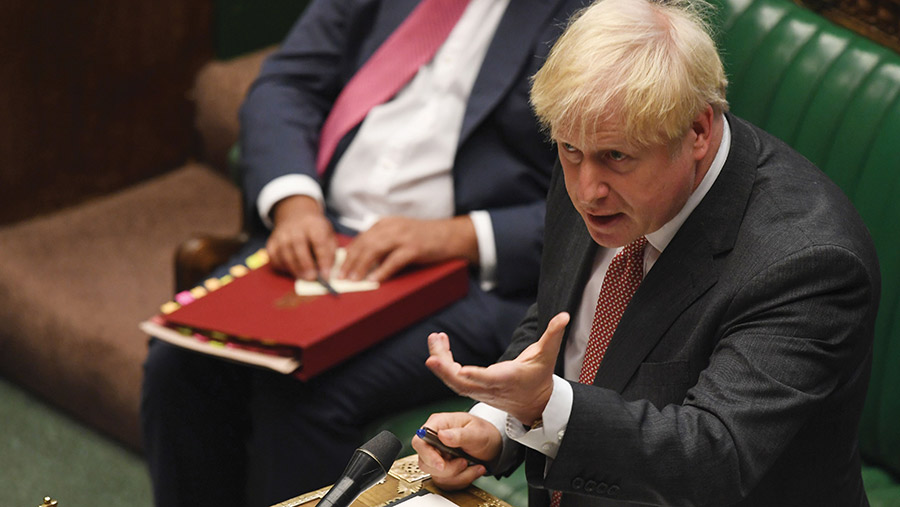No-deal Brexit looms as UK-EU trade tensions grow
 © Shutterstock
© Shutterstock Fears of a damaging no-deal Brexit are mounting following the latest fallout between Westminster and Brussels over future trading arrangements from 1 January 2021.
The row revolves around attempts by the UK to overrule parts of the Withdrawal Agreement it signed with the European Union a year ago, providing for an open border between the Republic of Ireland and Northern Ireland in the event of no deal.
See also: Parliament must get vote on future trade deals, insists NFU
But the Internal Market Bill, currently being considered in parliament, contains a number of measures to be applied in a no-deal scenario in order to protect the UK’s own internal market.
The fear is that if there is no deal, then Brussels could use the Withdrawal Agreement to impose tougher checks on GB goods going into Northern Ireland, or even apply tariffs (see “What is all the fuss about?).
Risks
Speaking in the House of Commons on Monday (14 September), prime minster Boris Johnson said the government accepted that tariffs could be applied to those goods “at risk” of going from Great Britain into the EU via Northern Ireland.
“But I’m afraid that some in the EU are now arguing that every good is ‘at risk’, and therefore liable for tariffs,” he said.
“There would be tariffs of potentially more than 61% on Welsh lamb heading from Anglesey to Antrim, and of more than 100% on clotted cream moving from Torridge – to pick a Devonshire town at random – to Larne.”
This would effectively “carve tariff borders across our own country” and was “unreasonable”, Mr Johnston suggested.
But Brussels says the UK plan to overrule parts of the Withdrawal Agreement amount to a breach of international law and an undermining of trust.
It has threatened to refuse to recognise the UK as a Third country in retaliation, effectively putting a block on food and live animal exports once the transition period ends on 31 December 2020.
Concern
Farm leaders have expressed their concern that the spat could accelerate the two sides towards no deal, with the imposition of steep tariffs on all agricultural trade with the EU, putting downward pressure on markets.
“It is hard to know if this is all about negotiating tactics or for real, but we need to make full-on preparations for a no deal,” said NFU president Minette Batters.
If there were to be a no-deal Brexit, then it would be better to know sooner rather than later, she added.
“There would be nothing worse than a cliff-edge at the 11th hour. We need time to prepare.”
Country Land and Business Association president Mark Bridgeman said it was self-evident that a free-trade deal was in the mutual interests of both the UK and the EU.
“To some extent, we can take comfort in the knowledge that such agreements regularly go down to the wire,” he said.
“But make no mistake, tariffs for exports into Europe will cripple many farming sectors, and we have written to government asking for a detailed, robust and well-funded support package for farmers should the worst happen.”
What is all the fuss about?
A key part of the Withdrawal Agreement concerns future arrangements for Northern Ireland in the event of a no-deal Brexit – the so-called Northern Ireland Protocol.
To avoid a hard border on the island of Ireland, Northern Ireland (NI) would remain within the European Single Market.
This would require additional paperwork for goods moving between Britain and NI, such as export declaration forms.
The protocol also says any state aid to NI businesses must meet EU rules.
The UK Internal Market Bill seeks to overrule both these aspects.
The protocol also provides for an EU-UK “joint committee” to identify goods “at risk” of moving from Britain to NI, which are then likely to move on to the EU.
Under a no-deal scenario, these goods would have tariffs imposed on them – the so-called “border down the Irish Sea”.
The UK is seeking to avoid or minimise this, while the EU is threatening to impose tariffs for all liable products.
